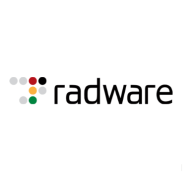


Azure Front Door and Radware Cloud WAF Service both compete in the web traffic management category. Radware has an edge in threat detection and advanced protection features.
Features: Azure Front Door offers network-level traffic inspection, SSL offloading, and includes customizable WAF policies integrated with CDN and load-balancing, suitable for organizations entrenched in Azure's ecosystem. Radware Cloud WAF Service provides in-depth threat detection, advanced bot management, CDN performance enhancements, and valuable machine-learning capabilities to identify unknown threats.
Room for Improvement: Azure Front Door could improve by broadening its cloud vendor compatibility and reducing latency. There's also room for better product clarity. Radware Cloud WAF Service could enhance ease of integration, refine its API discovery feature, and improve support response times while addressing false positives more effectively.
Ease of Deployment and Customer Service: Azure Front Door is praised for its seamless integration with Microsoft services and adequate customer support, though variability exists based on personnel. Radware Cloud WAF offers a smooth deployment process potent in hybrid cloud adaptability, though some users face a steeper learning curve initially. Both have robust customer service and public cloud functionality.
Pricing and ROI: Azure Front Door has competitive tiered pricing but can become costly in premium tiers. Its ROI is positive, due to efficiencies and security. Radware Cloud WAF is pricier, especially with advanced features, but offers comprehensive security packages that deliver a notable ROI through superior threat prevention.
WordPress security can be tricky, and that's where Cloudflare can be absolutely helpful for small businesses.
We have had ROI with the tool's use since it never gave us downtime and made us lose millions.
For the small project I was working on, using the basic tier provided a huge improvement at zero cost.
Azure Front Door offers a quick return on investment once it is set up.
I wouldn't be able to give a number, but Radware Cloud WAF does save time for our staff due to the automation and excellent detection, which is invaluable.
Radware Cloud WAF has helped reduce false positives and efforts, which in turn, improved the total cost of ownership by freeing up time to focus on other projects.
The ROI for Radware Cloud WAF Service is prominent as it is twenty percent more cost-effective compared to Imperva.
This would help us address issues promptly, especially during unforeseen events like DDoS attacks.
We'd like a dedicated account manager.
You can get a support engineer with the best qualifications.
I am able to set up a critical call with Microsoft, and they respond quickly to tickets with the highest severity.
The support provided by Radware's Emergency Response Team is excellent.
We have ERT premium support with a five-minute SLA.
They are usually very fast in response.
I would rate the solution's scalability a ten out of ten since I didn't encounter any issues with it.
I rate its scalability a ten out of ten because I had no issues with it.
I rate the scalability a ten out of ten.
I find that Front Door can become expensive for large-scale projects with more transactions and users.
I consider the scalability of Azure Front Door to be strong.
Since it's a Cloud WAF, it is always scalable.
I would rate it nine out of ten in terms of handling the capacity and volume.
Anytime we've had any issues, Radware has provided us a solution, indicating its high scalability.
For DDoS protection, I would not recommend Cloudflare.
I rate the solution’s stability an eight out of ten.
The service is very stable with no impacts during high-traffic periods.
I rate Azure Front Door's stability a nine because it is easy to make updates through Azure Portal.
I have never encountered downtime, maintenance-related issues, or latency.
The stability of Radware Cloud WAF Service is excellent, and I would rate it as a ten.
There have been no issues with downtime, bugs, or glitches.
There's a need for improvement in areas like AI-based DDoS attacks and Layer 7 WAF features.
Despite these challenges, overall, Cloudflare remains the preferred solution compared to Azure, AWS CloudFront, and Google Cloud Armor.
the ability to integrate with the on-site active directory instead of just AD through Azure AD
If I could use Azure Front Door with private IP addresses, it would be more beneficial.
The only significant adjustment required is with URL set parameters that need to be passed for an existing domain.
It would be beneficial if we could perform POST requests and integrate our applications more effectively.
Improving dashboard capabilities to provide this information clearly for management is crucial.
The reporting features could be more intuitive with more real-time monitoring, which would help make faster decisions.
That's where Cloudflare shines for smaller businesses – it's ten times cheaper than Akamai.
I find it to be cheap.
It's cost-effective, but I think they should have a custom pricing model for enterprise customers based on the features you use.
Azure Front Door is cheaper for small projects, companies, or applications compared to using separate tools.
Pricing could be more competitive, especially for smaller customers.
I find Radware Cloud WAF to be a quite expensive product compared to others.
The pricing is not cheap; it is expensive, but it is effective.
Our scenario consisted of two web servers in different allocations to control access demands, and the load balancer did the job as expected, bringing security and stability to access points.
For me, the valuable feature is DDoS protection.
The most valuable features of the solution are performance and security.
Azure Front Door provides DDoS protection and features related to WAF.
Azure Front Door includes a built-in web application firewall, which performs signature-based checks of the request payload, offering protection against common attacks or malicious requests.
The most important aspect of Radware Cloud WAF is that it is over the cloud, offering a comprehensive solution that includes WAF, API protection, bots, and Layer 7 DDoS.
Radware Cloud has significantly reduced attacks on our applications.
Radware Cloud WAF Service ensures our systems are stable, running smoothly, and blocking all attacks effectively.



Cloudflare is a highly-regarded Content Delivery Network (CDN) and a Distributed Denial-of-Service (DDoS) protection solution. The robust global connectivity cloud platform that is Cloudflare ensures users are able to connect to the Internet quickly, securely, and reliably. Cloudflare is one of the world's largest networks in the marketplace today. Using Cloudflare, businesses, educational entities, NGOs, vloggers, bloggers, and anyone else with an internet presence can experience more secure, faster websites and applications.
Currently, there are millions of Internet locations on Cloudflare, and the Cloudflare network
continues to grow every day by the thousands. The solution is able to fulfill the requests for
millions of websites seamlessly and serves on average 45 million HTTP requests per second.
Cloudflare has safe, secure data centers in close to 300 cities worldwide to ensure every
client request is filled as quickly as possible. It is Cloudflare’s edge network that makes this
possible by keeping content and other services as close to each client as possible, so the
information requests are always only seconds away.
Many organizations that work in democracy, civil society, human rights, or the arts are able to
access Cloudflare's highest levels of protection for free via Project Galileo. Additionally, official
election websites can be secured from hacking and fraud through Cloudflare’s Project
Athenian, also at no additional cost.
Cloudflare can also help organizations of all sizes develop a robust zero-trust strategy to
ensure the highest levels of productivity and profitability. Employees, stakeholders, and end users have a greater level of satisfaction and overall improved user experience, which can, in
turn, result in higher revenues and overall ROI. Zero-trust and BYOD (bring your own device)
access ensure end users and employees always have the best resources and technology
available to them at all times.
Cloudflare benefits
Cloudflare has many benefits. Some of its most valuable benefits include:
- Faster load times
- Robust DNS security
- Intuitive cloud Web Application Firewall (WAF)
- Free universal SSL
- Image enhancement
- Automatic browser caching
- Next-generation cloud load balancer
- Accelerated Mobile Pages (AMP)
- Rate limiting
- Minification
- Zero-trust capabilities
- Cost-effective
- Reduced carbon footprint
Reviews from real users
“Many websites require an SSL certificate because they sell stuff and want SSL. Cloudflare
comes with an SSL certificate built in. It's automatic. You sign yourself up for Cloudflare, and
an SSL certificate automatically protects your website. If you have a connection between your
website and your host, the server, Cloudflare, and the host, you don't necessarily need a
certificate.” Spencer M., Owner at Tech Exchange
“What I like best about Cloudflare is that my company can use it to trace and manage
applications and monitor traffic. The solution tells you if there's a spike in traffic. Cloudflare
also sends you a link to check your equipment and deployment and track it through peering,
so it's a valuable tool.” Daniel P., Network Engineer at Ufinet
“The most valuable feature of Cloudflare is the GUI. You are able to control the solution very
well through the interface. There is a lot of functionality that is embedded in the service.” PeerSpot user, Competence Center Manager at a tech services company
Azure Front Door is employed for securing external traffic, global load balancing, integrating web application firewalls, enabling disaster recovery, and enhancing application accessibility.
Organizations leverage Azure Front Door to support data publishing, act as a CDN, and ensure low latency for global users. Clients use it to protect numerous internet-accessible applications, integrate with DNS, and implement custom routes. Favored for caching web content and securely, efficiently distributing traffic to backend services, Azure Front Door offers SSL offloading, traffic inspection, and global scalability. Users value its affordability, ease of implementation, and web application firewall. Azure Front Door provides rich security features, traffic management, and URL rewriting. Load-balancing capabilities enhance performance with additional content security policies and bot protection. Integrations, including with GitOps, along with combined CDN and load-balancing, are also highlighted.
What are the most important features?Azure Front Door finds usage across multiple industries due to its versatile applications. E-commerce companies benefit from improved global accessibility and speed, while financial institutions leverage its security features for protecting sensitive data. Media and entertainment sectors use its CDN capabilities for seamless content delivery, and healthcare providers rely on its compliance and protection standards for patient data security.
Radware’s Cloud WAF provides enterprise-grade, continuously adaptive web application security protection. Based on Radware’s ICSA Labs certified, market-leading web application firewall, it provides full coverage of OWASP Top-10 threats and zero-day attacks, while implementing both negative and positive web application security models to automatically adapt protections to evolving threats and protected assets.
Radware’s Cloud WAF offers full web security protection including OWASP Top-10 coverage, advanced attack protection and 0-day attack protection by implementing both negative and positive web application security models. It provides organizations “frictionless” application protection by automatically detecting and protecting new web applications as they are added to the network through automatic policy generation technology.
We monitor all Web Application Firewall (WAF) reviews to prevent fraudulent reviews and keep review quality high. We do not post reviews by company employees or direct competitors. We validate each review for authenticity via cross-reference with LinkedIn, and personal follow-up with the reviewer when necessary.